Guests at the Division 2018
Every year we welcome several visiting scholars and other academic staff. Some come to teach in courses or in other ways collaborate with us, others come mainly do their own research. One thing they all have in common is that they become a big part of the Division.
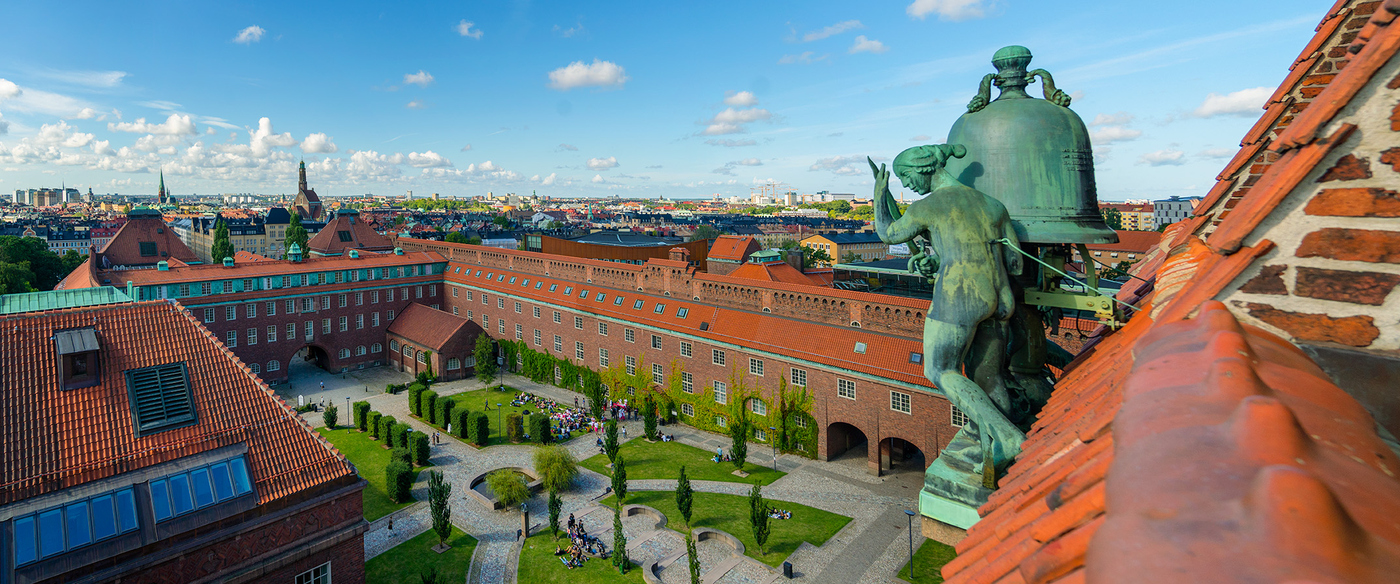
Fall 2018
| Esther Zamboni Rossi, PhD student at the Universidade Federal de Santa Catarina in Florianopolis Esther works with Eunice Nodari and her team of environmental historians. She is working on the environmental history of waste management in the city of Porto Alegre since 1970. She received a rather prestigious scholarship from the Brazilian agency Capes in order to spend a semester with us at the Lab. |
September to December |
| Yunwei Song, associate professor at the School of History at Renmin University of China in Beijing This is Yunwei's second visit at the Division where she joins Per Högselius. She holds a PhD from Peking University (2002). Her doctoral dissertation and first book (The Period of Dual Federalism in the United States) dealt with the relationship between federal and state governments before the American Civil War. Her current academic interests are on the history of natural resources policy. Her second book (The History of Nature Resources Policy in the United States) was published in 2011. She has also published articles on themes such as the management and development of Indian forests during the British colonial period and the US Timber Culture Act of 1873. |
June 2018 to June 2019 |
Spring 2018
| Arn Keeling, Professor at the Department of GeographyMemorial University of Newfoundland 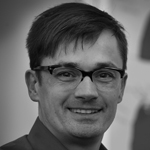
Arn is also co-supervising our doctoral student Camilla Winqvist in the Rexsac project |
February to March |
| Sanne Aagaard Jensen,PhD student at the Department of History, University of Copenhagen, and ENIGMA, the Danish Museum of Communication 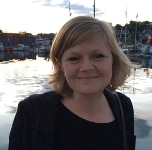
|
March to April |
| Claire Lagier, PhD Student, RCC Munich (ITN) Claire is an early career researcher within the ITN Marie Curie programme Enhance and she works on the MST (Landless) movement in Brazil, researching the connections between the use and discourse of agroecology and climate risk perception. Claire is also one of the editors of Uneven Earth . |
March to May |
| Jeroen Oomen, PhD Student, RCC Munich (ITN) Jeroen Oomen is trained in philosophy, sociology and political science, with a particular interest in questions of equality and justice, environment and climate change. He holds a B.A. (2011) and M.A. (2013) in Philosophy from the University of Amsterdam, the Netherlands, and a M.Sc. (summa cum laude, 2016) in International Relations and Diplomacy at the University of Antwerpen. He joined the RCC and Deutsches Museum in October 2015 as a doctoral candidate and Early Stage Researcher (ESR) of the ENHANCE ITN. Jeroen Oomen divides his time between the Deutsches Museum and the RCC, and was a visiting fellow at Harvard University in the Winter and Spring of 2017. His PhD-research entails a sociohistorical study of the sociotechnical development of climate engineering, focusing on case studies of the SPP-1689 in Germany and the David Keith Group, at Harvard University. |
March to June |
| Hanne Nielsen, PhD Student at the University of Tasmania, Hanne Nielsen will be visiting as a Scientific Committee for Antarctic Research (SCAR) Fellow. She is currently finishing a PhD at the University of Tasmania with the title “Not For Sale?: Representations of Antarctica for Commercial Purposes". While at KTH she will be working with Peder Roberts as part of the project “Greening the Poles: Science, the Environment, and the Creation of the Modern Arctic and Antarctic”, with a sub-project entitled "Framing Antarctica as Fragile: Tracing the evolution of media narratives about the far south (1945 – 2015)”. Hanne has considerable experience with public outreach (including on Antarctic tour ships) in addition to being a productive academic scholar. She also currently serves as President of the Association of Polar Early Career Scientists (APECS). |
March to July |
| Anna Fava, Lerici fellow Anna is a historian of Italian language and she is a PhD candidate in philology. She is currently working on a lexicon of the Italian environmentalism. |
March to June |
| Fabian Zimmer, M.A. Doctoral Candidate Rachel Carson Center for Environment and Society / LMU Munich Fabian's research focuses on the cultural history of modernity in Europe, which he explores through the history of technology, environmental history, and the history of science and medicine. Fabian studied history and German philology at the universities of Heidelberg and Lund. He graduated from Heidelberg University in 2016 with a master’s thesis on narratives of water power in early twentieth century Sweden, for which he was awarded the Georg Agricola Society’s Early Career Researchers Award in 2017. From 2012 to 2017 he was research assistant at the Institute for History and Ethics of Medicine at Heidelberg University in two projects: one on utility films in the Upper Rhine region and the other on the implementation of prenatal diagnosis in Western Germany between 1949 and 2010. In his PhD project he continues his exploration of the cultural and visual history of water power in twentieth century Europe. His research is funded by the German Federal Environmental Foundation (DBU). |
May to June |
| Stephanie Eifert, PhD Student at the Institute of History, Department of Medieval HistoryTU Darmstadt, KRITIS Stephanie studied history with a main focus on medieval history and archaeology at the University of Mainz where she graduated with a master’s thesis on “Chivalry and violence in the ‘Scalacronica’ and the ‘Geschichten und Taten des Wilwolts von Schaumburg’”. Her research interests are regional history of the southwest area of Germany, historical culture studies, history of early infrastructure systems, history of medicine, history of northern Europe and auxiliary sciences of history. Before starting her PhD project she worked as a research assistant at the Landesarchiv of Baden-Württemberg. Her PhD project is part of the Research Training Group KRITIS – Critical Infrastructures: Construction, Functional Crises and Protection in Cities at TU Darmstadt. In her project she explores fluvial infrastructures in relation to local power structures with the examples of the rivers Rhine and Main between the 13th and 15th century. |
May to September |
| Dr Fiona Cameron, visiting professor at Linköping University, Sweden, LiU 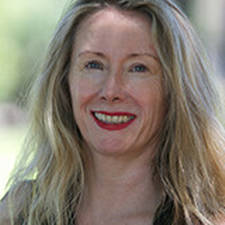
Cameron is a pioneer in the academic field of museums and climate change engagement and has published extensively, including five books and more than 80 articles in leading journals. She is also a museum practitioner and has worked in the sector as a museum director, a social history curator and as a curatorial consultant on major exhibition projects in New Zealand, Australia, Singapore and Vanuatu. |
June to July |
| Jonathan Curruthers-Jones, PhD student Leeds (ITN) 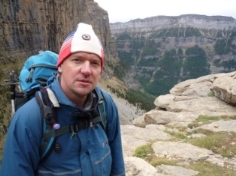
|
June to August |
Sebastian V. Grevsmühl, CNRS researcher at the Centre de recherches historiques (CRH) in Paris
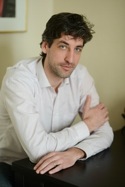
He earned his doctorate in history of science from the Ecole des Hautes Etudes en Sciences Sociales in 2012. Sebastian’s research interests focus on the history of the twentieth century science, with a particular focus on Outer Space, Antarctica and the global environment. In his book The Space Perspective and the Invention of the Global Environment (La Terre vue d’en haut. L’invention de l’environnement global, Seuil, 2014) he proposes a cultural (and political) history of Earth imagery, from mid-nineteenth century balloon photography and twentieth century space imagery to global environmental views (such as the ozone hole and connected geoengineering fantasies). Most of his work concerns environmental history, visual studies and the history of the Earth and environmental sciences. His ongoing research project on Global Environmental Images explores the rich and complex environmental iconography associated with an increasingly global conception of the alarming consequences of our own actions on the environment. Images (yet also metaphors, rhetoric and imagination) are particularly helpful in analysing this historical development because they help bridge the gap between scientific theories of ecological and biophysical processes and public engagement, between the environmental sciences and environmental politics. |
June to August |
